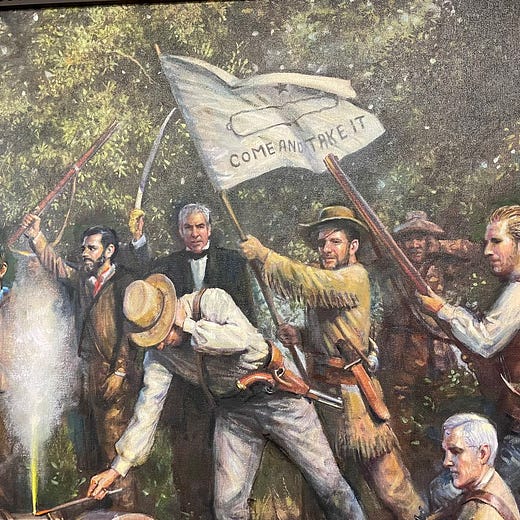Recently at The Bulwark:
CHARLIE SYKES: Some Thoughts on Accountability and The Hinge of Fate.
JVL: The West Is Winning, Russia Is Losing, and Biden Is Doing a Good Job and Zelensky Has Become More Than a Man.
HANNAH YOEST: The Politics of Privation.
You can support The Bulwark by subscribing to Bulwark+ or just by sharing this newsletter with someone you think would value it.
AMANDA CARPENTER: Shame On Those Who Defended Trump’s “Perfect Call.”
It’s important to remember today that Trump’s desire to manipulate Zelensky and the security of Ukraine for his personal ends was deemed entirely acceptable by Republican officeholders and elites.
Trump’s then-chief of staff, Mick Mulvaney, aggressively confirmed and defended Trump’s actions in an October 17 White House briefing. He told reporters the conspiracy theory about the Ukrainian server was “Why we held up the money.” He said there was nothing wrong with Trump’s quid-pro-quo: “We do that all the time with foreign policy.” He said: “I have news for everybody: get over it. There is going to be political influence in foreign policy.”
The Focus Group with Sarah Longwell is BACK!
Sarah kicks off the season with Democratic-turned-Republican strategist Mark McKinnon to talk about Mark’s adopted party (the Republican Party) in his adopted home state (Texas).
Sarah and Mark discuss how our group of Texas Republicans feel about Trump, January 6th, the Bush family, and the Texas primaries for Governor and Attorney General.
Democracy and freedom have seemed to be on the decline. But Ukraine’s pushback against authoritarianism has lit a spark around the world. Will Saletan is back for Charlie and Will Mondays.
UKRAINE Coverage 🇺🇦
MITCHELL A. ORENSTEIN: What Changed Germany’s Mind.
But Germany’s desire to see reform in Russia led to its warm embrace of Dmitri Medvedev, who was nominally the leader of Russia from 2008-2012 when he served as president. (The real power followed Vladimir Putin from the presidency to the premiership.) German Chancellor Angela Merkel and other German leaders were taken in by the smooth, relatively liberal-seeming Medvedev and chose to ignore Putin’s 2007 Munich Security Conference speech in which he declared the end of the U.S. unipolar order, the massive cyberattack on Estonia later that year, Russia’s invasion of Georgia in August 2008, and myriad other signs that Russia had launched a hybrid war on the West.
Germany only began to wise up in 2011-2012, when Russia repressed the Bolotnaya protests and Putin returned to the presidency. Merkel and other European leaders seemed shocked and disappointed. However, it was only really after Russia’s 2014 invasion of Crimea and downing of the civilian airliner MH-17 that Merkel declared Putin to be “living in another world” and initiated economic sanctions on Russia in the context of the European Union. Even then, Germany did everything it could to reduce the possibility of a conflict in Ukraine by negotiating and endorsing the absurd Minsk protocols, which were extremely unfavorable to Ukraine, but seemed a reasonable price to pay for peace—at least to Germany.
CHRIS TRUAX: The Case for SWIFT Sanctions Against Russia
The bar for banning Russia from SWIFT, the international communication system that banks use to send payment instructions, has always been very high. The United States has a unique position in the world economic order—a position from which we reap enormous benefits—because it is perceived as an honest broker. Over the last 20 years or so, we’ve started to leverage that position to achieve various American policy goals. While SWIFT itself is not subject to direct U.S. control—it’s run by the G-10 central banks, based in Brussels, and subject to EU law—SWIFT has no choice but to honor American sanctions, just like everybody else. That’s why the Iranians were cut off from the SWIFT system in 2012 and again in 2018. But if used too often, banking sanctions can create an incentive for the rest of the world to create a parallel banking system and reserve currency that doesn’t depend on the United States.
🚨OVERTIME 🚨
How to drive Russian armor… The guides are popping up on TikTok in Ukraine.
RIP Paul Cantor. The professor, critic, scholar, (and great writer) has passed on. Be sure to read some of his essays or watch his interviews with Bill Kristol.
Want to support Ukraine? Here’s how you can help.
The ghost ski resorts… Here’s one not far from Calgary, and it. looks. awesome. (If you don’t like skiing, stay for the beautiful scene and great soul music.)
How Russian sanctions work… A must-read explainer by David Frum.
Dan Crenshaw’s weird office art…
Turns out, it’s a commissioned work from an original done by a Texan that was first painted in 2015. Whoever paid for it had Dan Crenshaw, Donald Trump and his sons added into it. Weird stuff.
That’s it for me. Tech support questions? Email members@thebulwark.com. Questions for me? Respond to this message.
—30—
Editorial photos provided by Getty Images. For full credits, please consult the article.










